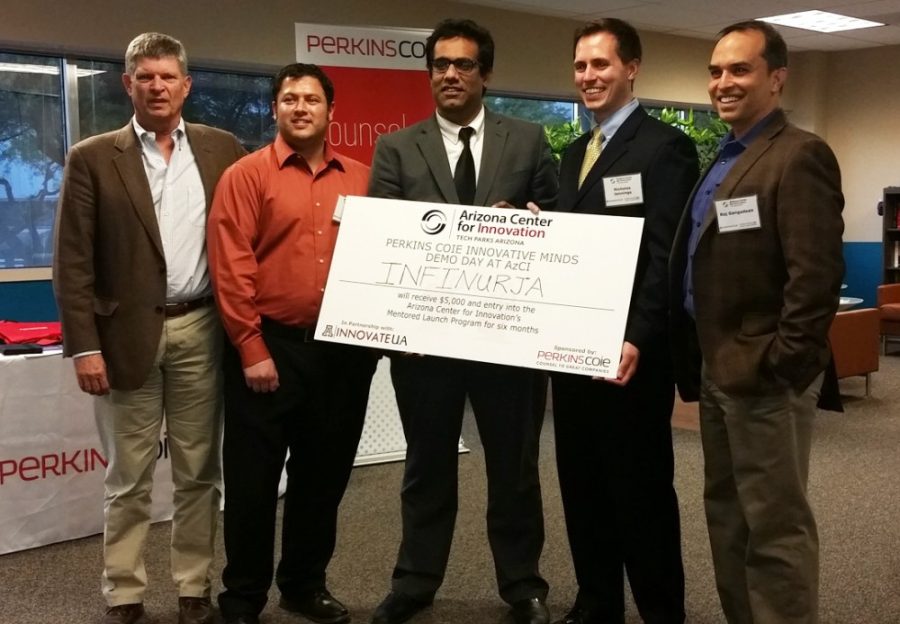On Tuesday, the Arizona Center for Innovation launched the 2015 Perkins Coie Innovative Minds Challenge where students compete for funding, access to Mentored Launch support and mentoring that will help them transform their ideas into reality.
Anita Bell, acting director at the Arizona Center for Innovation, said the purpose of this competition is to “provide opportunities for students,” and one way is by creating their own jobs through starting their own companies.
According to Bell, it is important for students to stay in the state of Arizona in order to have a better educated population, which leads to higher salaries and a better quality of life.
A total of $10,000 in grants were awarded to the top three teams. The first place winner won $5,000, the second and third place winners received $2,500.
This prize money, according to Bell, is meant for the students to further commercialize their innovations.
In first place, winning $5,000 was Infinurja. The group aims to provide low-cost, renewable electricity to underdeveloped areas to improve the quality and standard of life, with India being the primary location in focus.
“People in India need this product, which would enable us to make a difference,” said Vinay Nenwani, a student majoring in business administration and management information systems.
Nenwani added that he has connections in India, which would allow him to deploy this product when ready.
The innovation involves waste conversion. Nenwani said waste is a problem and liability, so “we are using that problem and converting that problem into electricity.”
Nenwani is the CEO of Infinurja, which aims to produce and sell patent-pending products that use organic waste processes to create consistent electricity to homes.
Agent Sage, a different group, aims to match buyers and sellers to agents on a basis of compatibility through an online platform and was awarded a $2,500 prize.
Zy Mazza, a religious studies freshman, said Agent Sage is unique because “it just doesn’t exist in the market sector right now,” and “nobody has really seen the value of personal compatibility in the field.”
Mazza, the CEO at Agent Sage, added that the six-month mentoring and office space awarded are far greater than the prize money, because they will get the opportunity to interact with people who can help get their business on the right track.
Edible Optics, one of the $2,500 recipients , aims to introduce optical engineering to children and parents through the production of edible lenses, which are low calorie and diabetic friendly.
“Our idea is unique, because nobody else combines STEM education with something that is edible to draw kids in and get them excited,” said Sarina Sedgwick, a chemical engineering junior.
Sedgwick added that with the prize money, they will develop products further and file for a patent.
_______________
Follow Terrie Brianna on Twitter.









